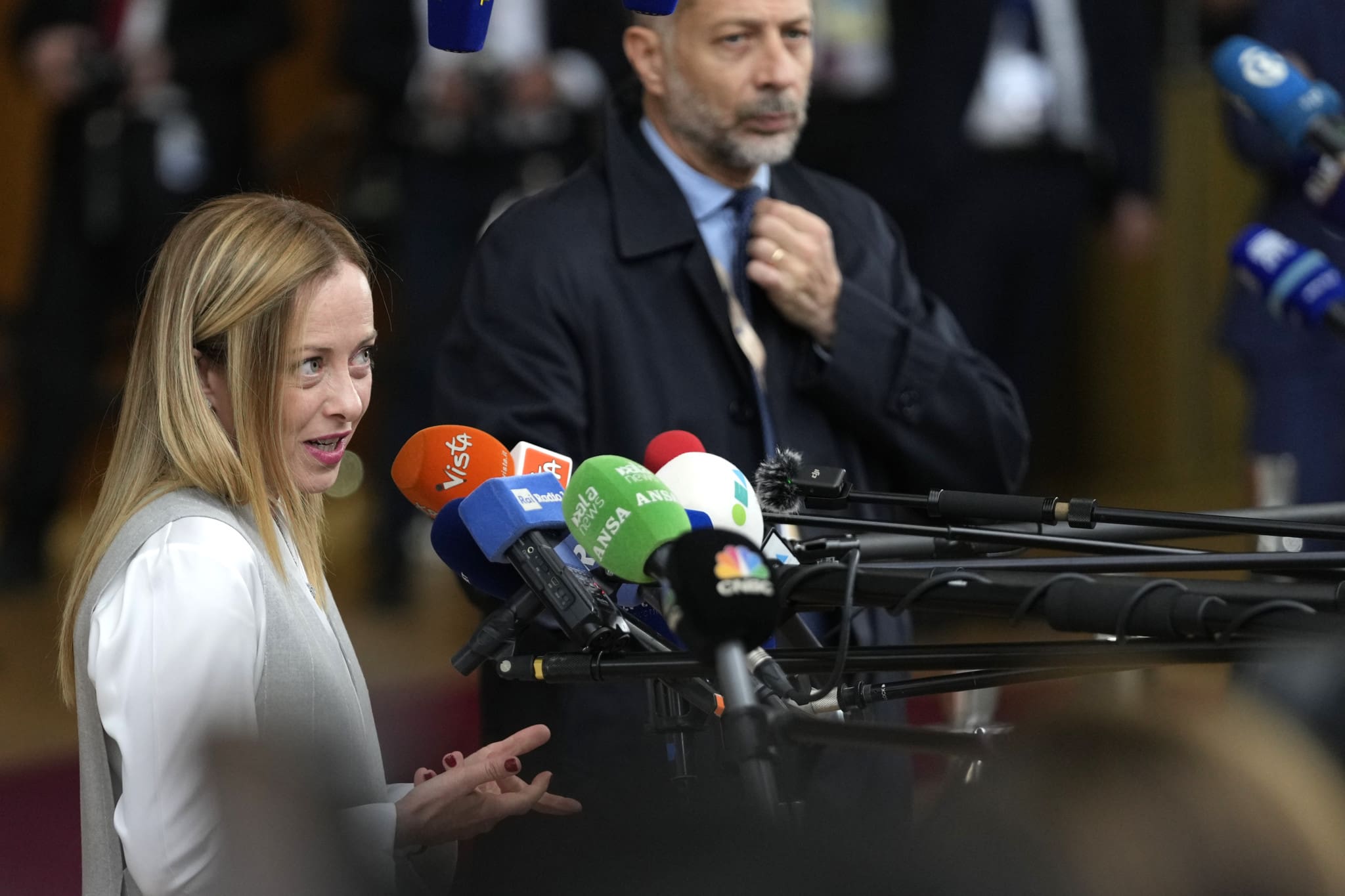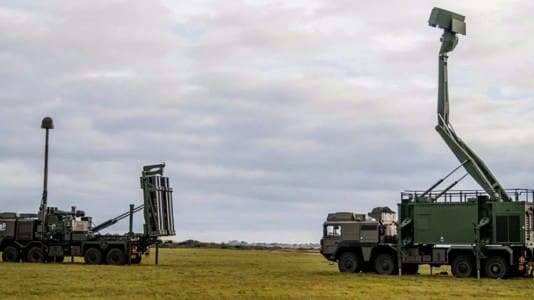Italy is the latest EU nation to sign its own offshore migrant processing deal with a third country after the U.K. and Denmark last year, while Austria is also working on a similar scheme.
The Italian offshoring deal was signed with Albania on Nov. 6, during a visit to Rome by Albanian Prime Minister Edi Rama. According to the deal, Albania will allow Italy to build two migrant facilities on its territory with the capacity to process a total of 36,000 migrants a year, but only 3,000 at one time.
These facilities will be for those illegal immigrants who file for asylum, which most do to avoid deportation.
With this new offshoring scheme, however, the migrants intercepted by the Italian navy or coast guard will be brought to Albania instead of Italy.
Contrary to the U.K.’s Rwanda scheme, which has yet to be implemented and is subject to overcoming all the judicial hurdles after the first transport of migrants was blocked at the last minute by the European Court of Human Rights (ECHR) last year, Italy’s Albania scheme will allow the migrants sent to Albania to file for asylum in Italy where they will be allowed to settle if their application is accepted. The others will be deported back to their country of origin, which could prove dissuasive for would-be economic migrants.
In the case of the U.K.’s offshoring scheme with Rwanda, the migrants sent to Rwanda will only be able to file for asylum in this African country, not in the United Kingdom.
The Italian Albania scheme will not apply to minors, pregnant women, or the vulnerable, and neither will it apply to migrants transported to Italy on NGO ships or those who reach Italian shores by their own means, without being rescued or intercepted by the Italian navy or coast guard.
It will therefore be for Italy to intensify its sea patrols to intercept a maximum number of migrants and also to accelerate the processing of asylum requests to make room in Albania for the successive waves of migrants.
This new offshoring scheme pursues three objectives, Prime Minister Giorgia Meloni said at a press conference held after the deal was signed: to stop the smuggling of human beings, prevent the influx of illegal immigrants, and welcome only those who are truly entitled to international protection. Meloni also said discussions with the Albanian government on the deal had been ongoing since mid-August.
At the Albanian port of Shengjin, Italy will handle the disembarkation and identification procedures and set up a first reception and screening center, whereas in Gjader, in the west of Albania, it will set up a closed migrant center for follow-up procedures. Albania will cooperate on the external oversight of the facilities.
This type of scheme was first enforced on a large scale by Australia under the name “Operation Sovereign Borders,” which is still in force despite Australia having a left-wing Labor government.
In 2013, under Operation Sovereign Borders, Australia started to systematically intern illegal immigrants found at sea or intercepted on arrival at Australian shores in detention centers run on other islands with which the government in Canberra had signed agreements. The other rule that was introduced in 2013, and which has proven essential for the success of an operation that has been kept in force since then, is that anyone caught attempting to reach the Australian coast illegally is automatically banned for life from entering Australia or seeking asylum in Australia.
Under the 2007-2010 Labor government, illegal immigration by sea totaled around 50,000 people, including over 37,000 between 2012 and 2013 alone, and there were more than 1,200 recorded deaths by drowning.
That was after the government of Prime Minister Kevin Rudd dismantled the anti-illegal immigration scheme of his predecessor, John Howard. Since 2013, the drownings have stopped, together with the flow of boats carrying illegal immigrants.
Italy, Austria, and Denmark have advocated in the past in favor of such a scheme to be adopted at the EU level, but to no effect, as the elites in Brussels are hell-bent on encouraging immigration, both legal and illegal, as a way to compensate for the low birthrates as well as to blur national identities across the continent.
This is why countries resisting this are now going it alone. Even Germany, although its government is ideologically on the side of the pro-immigration elites in Brussels, now seems to be more keen on mass deporting illegal immigrants, as support for Olaf Scholz’s governing coalition is plummeting and the anti-immigration AfD’s polling is rising sharply.
In Italy, Giorgia Meloni has been facing a wave of criticism for failing to fulfill her promises that, if elected, she would enforce a naval blockade to prevent the illegal crossing of the Mediterranean by tens of thousands of Africans, Middle Easterners, and South Asians.
A stunning 145,314 illegal immigrants arrived by sea in Italy from Jan. 1 to Nov. 6 this year, according to the data published by Italy’s Interior Ministry. This is versus 88,095 during the same period last year and 54,733 during the same period in 2021.
As Brothers of Italy MEP Vincenzo Sofo explained in an interview with Remix News last May, the solutions implemented in its time by Matteo Salvini cannot be repeated as they have since been deemed unconstitutional by the Italian constitutional court.
Having her hands tied by EU rules and, likely, some discreet financial blackmail on the part of the European Commission, which has been withholding the third €19-billion tranche of Next Generation EU money owed to Italy for almost a year now (just as it has been withholding the first tranche of Next Generation EU money allocated to Poland and Hungary for several years), the Italian prime minister has focused her efforts on securing deals with departing countries.
Unfortunately, after a crucial deal was signed with Tunisia in July by European Commission President Ursula von der Leyen as well as the Italian and Dutch prime ministers, Giorgia Meloni and Mark Rutte, it was torpedoed by the left in the European Parliament as well as by Josep Borrell, the vice-president of the European Commission and the EU’s High Representative for Foreign Affairs and Security Policy.
Since then, the influx of immigrants sailing from the Tunisian shore has only increased, submerging the small Italian island of Lampedusa, which lies close to the North African country.
The deal with Albania is harshly criticized by the Italian left, which accuses Giorgia Meloni’s right-wing government of creating a sort of Italian Guantanamo. But inside Meloni’s Brothers of Italy party, people are convinced it is a historic agreement that will deter those who travel illegally at great cost for themselves and their families and do not qualify for asylum, as they will no longer be certain to ever enter the EU.
While the financial details of this deal have not yet been disclosed, Albania knows it can count on Italy’s support in its efforts to join the European Union. Tirana has also signed a fast-track readmission agreement with the U.K., thanks to which the number of Albanians traveling illegally to that country and crossing the English Channel has fallen by 90 percent this year compared to last year when Albanian nationals accounted for a quarter of the 44,774 who reached the U.K. on small boats.
As Albania is universally considered a safe country, Italy’s Albania scheme is likely to go ahead without the courts standing in its way as has been the case with the U.K.’s Rwanda scheme. If it works well, other EU countries could try and secure similar deals.





